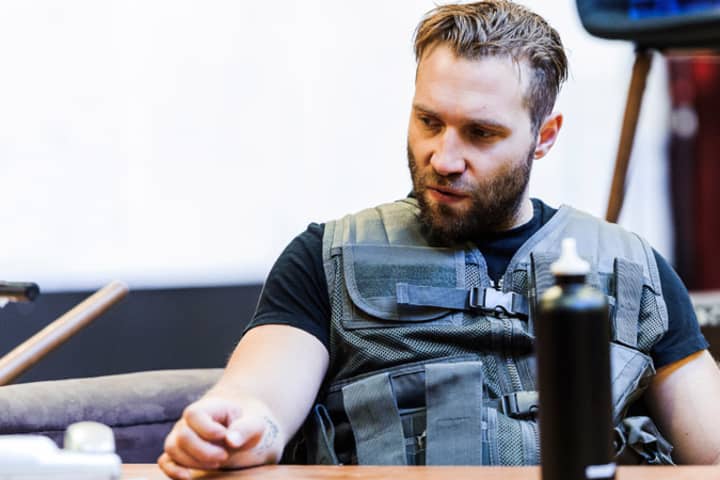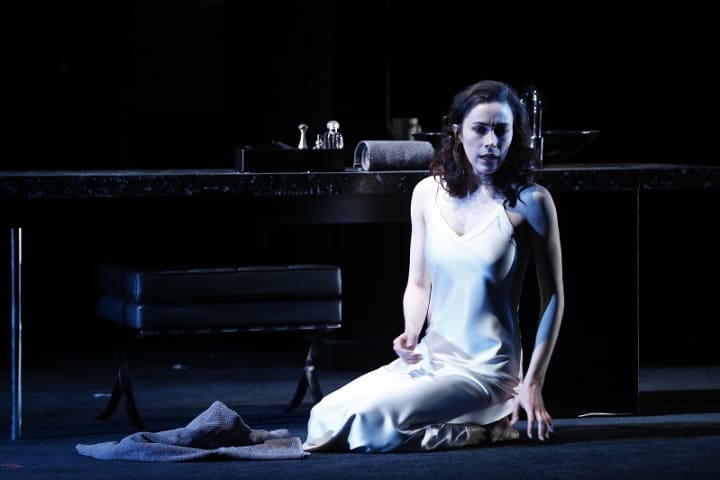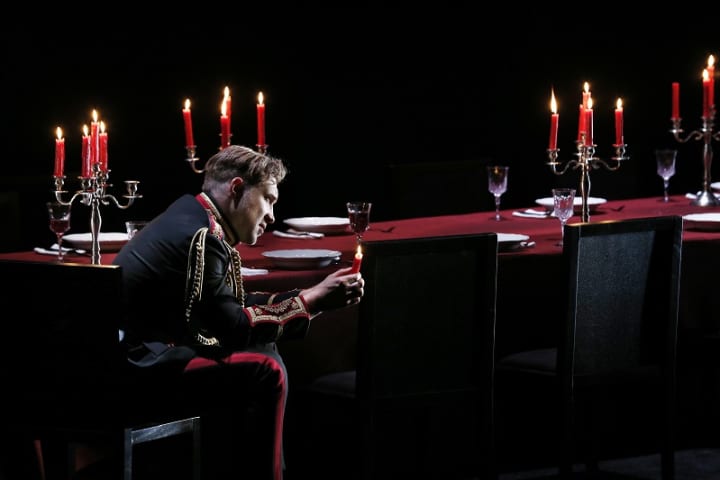Ahead of the Macbeth season, Tom Hobbs tells us about the many thresholds encountered by his character Malcolm.
What is Macbeth about?
It’s about grief, power, death, and life … and potentially everything else. It’s a pretty full piece, which is wonderful, and why it’s one of the most famous of Shakespeare’s plays. It’s complex, but it’s also not hard to see.
Tell us about the characterisation of Malcolm?
The threshold for Malcolm is stepping into the role that he’s been given, which he would have much rather grown into under his father’s watch. Just because he becomes the prince of Cumberland doesn’t mean he’s the king immediately, so he escapes – he flees. Does he flee because he’s not ready? Possibly. Does he flee because he’s petrified? Definitely. Does he flee just because he knows his life is at risk? Most certainly. And so where those kinds of things come into play and how he wrestles with them comes out in this England scene, which is really interesting – he comes up with a test to see who his true friends are. He’s not sure if Macduff is his ally. That’s a threshold. He’s had to become the King, potentially the King he didn’t think he’d have to become so quickly, and that’s a threshold. He could stay run away if he wanted to, but he’s braver than that.
Are there any design/directorial choices you’re particularly excited about?
That’s the great thing about Shakespeare. More so than contemporary plays, you’ve got a language that’s timeless. In the text, when you haven’t done Shakespeare in a while, it’s incredibly daunting and exciting all at once, and the apprehension kind of disappears and you immerse yourself and it becomes really interesting and fun. I love Shakespeare.
How does this production resonate with the world we live in?
It’s kind of like the series Black Mirror with dystopian futures that are not from any one year or any one thing, but it’s taking an idea and stretching that idea to the nth degree and seeing how comfortable or uncomfortable we are with it. That’s the great thing about this production, Simon has given us glimpses and the audience can make up the rest themselves. We don’t know the answer, it’s always ongoing – there are glimpses of Syria, and you could argue Trump – but we’re all making this up. One line that is very current for me, might be reflected in the 60s for someone else. I think there’s a lot that could be reflected, and currently the political climate worldwide is intense, so seeing something like this you’ll be able to draw a few parallels to a lot of hotspots around the world. It exists in its own world, which is why it is timeless.
What was your first experience of Shakespeare?
I went to a lot of plays when I was young, my mother’s an actress and I remember she took me to see The Tempest. I think that was the first Shakespeare that I saw, that I remember vividly at least, and I grasped it for the basic idea of it. Even though I found Shakespeare overwhelming as a youngster, I did really engage on a visceral, instinctual level. It was exciting; there was also a swimming pool on stage, which was incredible.
Macbeth plays at Southbank Theatre from 5 June. Book now.
Published on 4 June 2017





